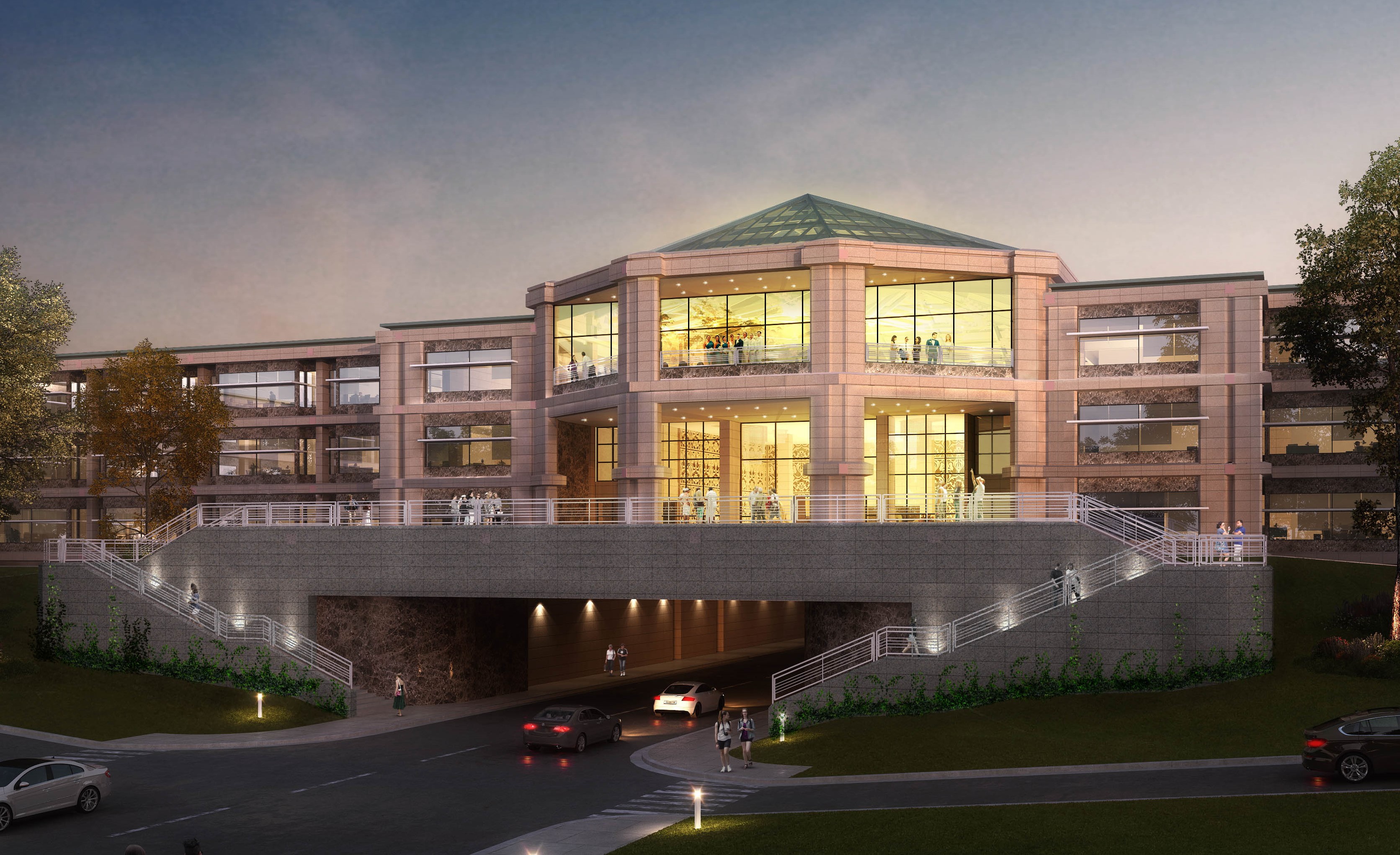McDonald's. Mondelez. Conagra. Motorola. As suburban corporations continue to seek out young, city-dwelling talent for the changing workplace, a swathe of major headquarters have moved to downtown Chicago.
But what happens to the sprawling campuses those companies leave behind? While the return of big business to the Loop is touted as a success of the outgoing Emanuel administration, it's also left a number of suburbs stuck with empty HQs — and the challenge of figuring out how to repurpose them.
Enter the so-called “metroburb,” an urban planning concept coined by New Jersey-based Somerset Development. The company’s president, Ralph Zucker, defines the metroburb as “an urban hub — a core, a metropolis — in a suburban location.”
In other words: The firm transforms former corporate campuses into mixed-use developments with residential, office, and shopping space.
Somerset built its flagship metroburb, Bell Works, at the site of the former Bell Labs campus in its native New Jersey. Today, the complex, which Somerset bought in 2013, is home to more than a million square feet of businesses, retail, and community space.
Next in line for the developer? The 150-acre former AT&T campus in suburban Hoffman Estates. There, Somerset plans to build 1.2 million square feet of office space, 60,000 square feet for restaurants and retail, and another 60,000 square feet of conference facilities and amenities. The company plans to rebadge the AT&T campus as "Bell Works" as well.
So: Is the metroburb the best solution for a vacant corporate headquarters? And how, you might ask, are these structures any different than the suburban shopping malls that have died off in recent decades?
Zucker says it’s simple: suburban residents still want things to do and opportunities to interact with one another. “It’s not [about] whether the suburbs are dead or alive. There are still many people who want to live in suburbia and want the suburban lifestyle but don't want to live in isolation.”
He adds that many aging suburban corporate complexes aren't well integrated into their surroundings, which he sees as a design flaw. Transforming such campuses into mixed-use developments doesn't just create new attractions for nearby residents; it also opens up a previously private space to the public.
“When a company is the single occupier of a large corporate campus, it’s hard to [bring together the same] life [that] disparate companies bring together with retail,” Zucker says. “We’re creating a block; a town square. These large corporations are not opening up their campus to the community.”
Interestingly enough, it was Hoffman Estates that approached Somerset with the idea to overhaul the AT&T campus, and not the other way around. As of now, Somerset has formally purchased the 150-acre campus and has approvals in hand to begin the overhaul. The developer says the budget for the project is $200 million — roughly the same cost of building a pretty-tall skyscraper in Chicago.
Construction and leasing at Bell Works will begin in tandem in the coming weeks, as Somerset inks deals with businesses and tenants. Hoffman Estates's completed metroburb is still a long way out, but the first phase could open as early as late 2019.



